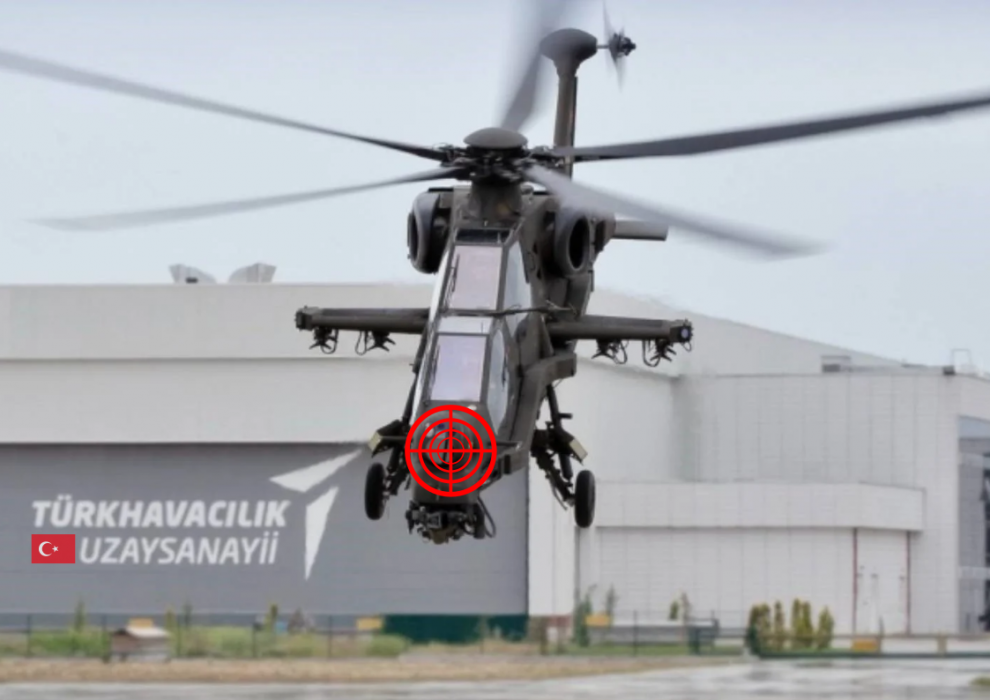A terror threat to TUSAŞ aims to harm Turkey’s defense sector, benefit rivals, and weaken military operations, impacting regional power balance.
A potential terrorist attack on the Turkish Aerospace Industries (TUSAŞ) facility in Ankara could have significant strategic implications by targeting Turkey’s national security and defense sector. TUSAŞ plays a vital role in developing aerospace and defense technologies for Turkey, including combat aircraft and UAVs, enhancing the country’s defense capabilities. Such an attack could benefit regional rivals like Russia and Iran, global powers concerned about Turkey’s growing defense industry independence, and terrorist organizations such as the PKK seeking to undermine Turkey’s military strength. The impact of the attack would depend on the extent of damage caused and could temporarily weaken Turkey’s ability to conduct military operations, potentially shifting the balance of power in the region. Ultimately, the consequences of the attack would require further investigation into the motives behind it.
A recent hypothetical terrorist attack targeting the Turkish Aerospace Industries (TUSAŞ) facility in Ankara could have far-reaching implications for Turkey’s national security and defense capabilities. As a key player in Turkey’s defense sector, TUSAŞ plays a critical role in the production of military aircraft, UAVs, and other defense technologies that enhance the country’s military autonomy. Such an attack would strike at the heart of Turkey’s military and geopolitical objectives, potentially benefiting various regional and global actors.
Turkey’s Defense Industry and TUSAŞ’s Role
TUSAŞ is central to Turkey’s strategy of self-sufficiency in defense production, reducing its reliance on foreign suppliers. The company is heavily involved in the development of cutting-edge aerospace technology, including UAVs and national combat aircraft. Any attack on this facility would disrupt critical defense projects, undermining Turkey’s efforts to assert itself as a regional power and complicating its military operations in conflict zones like Syria and Libya.
Turkey’s defense industry has allowed the country to project power independently, particularly in UAV technology, which has been crucial in operations across the Middle East and the Eastern Mediterranean. Any disruption caused by a successful attack on TUSAŞ could slow these advancements, putting Turkey at a temporary strategic disadvantage and providing an opening for its adversaries to challenge its regional influence.
Potential Beneficiaries
Regional Rivals
Several of Turkey’s regional rivals could stand to gain from such an attack. Turkey’s active military role in Syria has brought it into direct confrontation with the Assad regime, as well as its allies, Iran and Russia. These actors, who oppose Turkey’s military interventions and its growing influence in the region, could see an attack on TUSAŞ as a way to weaken its military capabilities, particularly in UAV technology, which has been a key tool in Turkey’s regional operations.
Moreover, Turkey’s presence in the Eastern Mediterranean, where it has been involved in disputes over energy resources with Greece and Cyprus, has heightened tensions. A successful attack on TUSAŞ, particularly if it disrupts the production of naval and aerial defense systems, could shift the balance of power in favor of these regional rivals.
Global Powers
The attack could also serve the interests of certain global powers. Turkey’s pursuit of greater defense autonomy, especially following its controversial purchase of the Russian S-400 missile defense system, has strained its relations with NATO allies, particularly the United States. A weakened Turkish defense industry would make Turkey more dependent on foreign military supplies, which could benefit Western defense corporations and diminish Turkey’s leverage within NATO.
Turkey’s growing self-sufficiency in defense production poses a commercial challenge to Western arms manufacturers, and a slowdown in its defense projects could open the door for these global powers to regain influence over Turkey’s military supply chain.
Terrorist Organizations and Non-State Actors
Terrorist organizations, such as the Kurdistan Workers’ Party (PKK), which has waged a long-standing insurgency against the Turkish state, would also benefit from an attack on TUSAŞ. The defense technology produced by TUSAŞ has been instrumental in Turkey’s counter-terrorism efforts. Weakening Turkey’s defense capabilities could allow these groups to operate more freely, while reducing the government’s ability to conduct effective counterinsurgency operations.
Furthermore, non-state actors or rogue states that support anti-Turkish insurgencies could exploit the opportunity to destabilize Turkey further, diminishing its ability to project power both domestically and in regional conflicts.
Strategic Consequences
The long-term impact of an attack on TUSAŞ would depend on the extent of the damage and the duration of the disruption. If critical defense projects were delayed, Turkey’s operational readiness could suffer, particularly in regions where it relies on advanced technology to maintain military superiority. This would create opportunities for both regional and global competitors to exploit Turkey’s temporary vulnerabilities.
A weakened defense industry would force Turkey to recalibrate its foreign policy, potentially withdrawing from aggressive military stances or delaying ongoing operations. Such a shift could embolden its adversaries, while increasing the likelihood of foreign powers offering assistance in exchange for political leverage.
Conclusion
A terrorist attack on TUSAŞ would have profound implications for Turkey’s defense sector and regional standing. Depending on the scale and scope of the damage, regional rivals, global powers, and terrorist organizations could all benefit from such an attack. The disruption to Turkey’s defense industry could shift the balance of power in favor of its competitors, both in the Eastern Mediterranean and the broader Middle East. Identifying the exact beneficiary, however, would require a deeper investigation into the perpetrators’ motives and the geopolitical context surrounding the attack.






